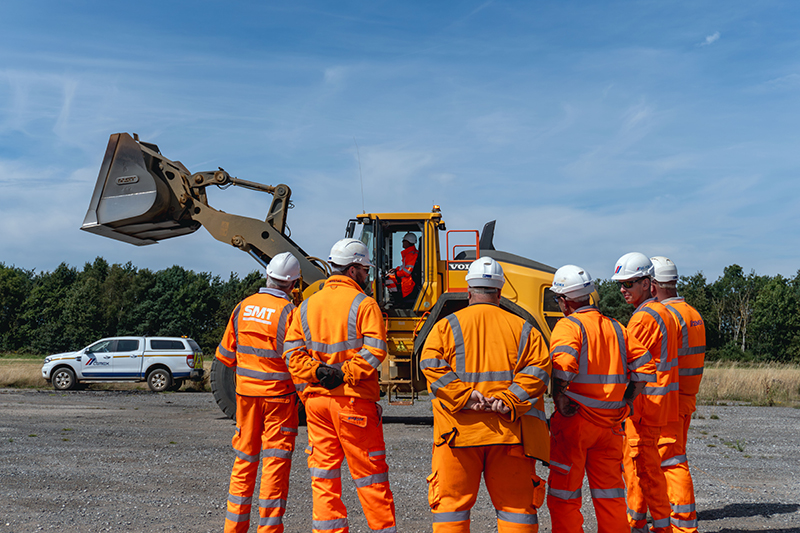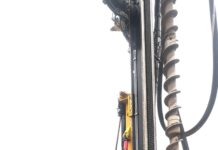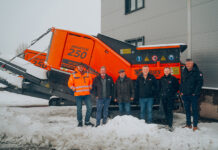BUILDING materials giant Cemex UK has teamed up with SMT to implement a customised training programme designed to enhance collaboration between site managers and operators, drive CO2 reductions from diesel machines, and pave the way for zero-emission equipment in the future.
Cemex is striving to achieve carbon neutrality by 2050, with a 2030 interim goal of reducing CO2 emissions from cement production by 47% versus 1990 levels.
The company is aiming to help its operators to accelerate decarbonisation through the EcoOperator programme from Volvo dealer SMT.
“Even with conventional diesel machines, operators can implement techniques to improve efficiency and reduce emissions, laying the groundwork for a seamless transition to zero-emission equipment, powered by renewable energy or hydrogen power in the future,” explained Kevin Cage, head of UK aggregate operations at Cemex.
Cemex UK challenged SMT to develop a version of EcoOperator training tailored to site managers. EcoOperator training, which combines theory with practical exercises, is a programme designed to deepen experienced operators’ awareness and understanding of how they can contribute to greater sustainability. It focuses attention on minimising machine wear and tear, which decreases the carbon footprint associated with the manufacture and distribution of replacement parts.
“EcoOperator training typically results in fuel efficiency improvements of around 5% and while that might seem modest, the impact is substantial,” said Richard Cannon, operator training manager at SMT.
The new site manager version of the programme developed for Cemex focuses on helping managers understand and interpret telematics data, facilitate more efficient fleet and site setups, and establish appropriate targets.
“When managers understand the goals we’re trying to achieve with the operators, it significantly enhances the effectiveness of the entire programme,” Kevin added. “It’s much easier when everyone is on the same page.”
Giving an example of the cooperation required, Richard stated, “While it’s widely acknowledged that excessive machine idling wastes fuel, setting overly strict idling targets, for instance, might inadvertently encourage operators to bypass the necessary engine cooldown process, risking costly damage to the turbocharger. In this case, the training would help site managers to establish a more realistic idling target for improving fuel efficiency while maintaining machine health.”
SMT will collaborate with Cemex by analysing machine telemetry data and identifying any further opportunities for improvement.












